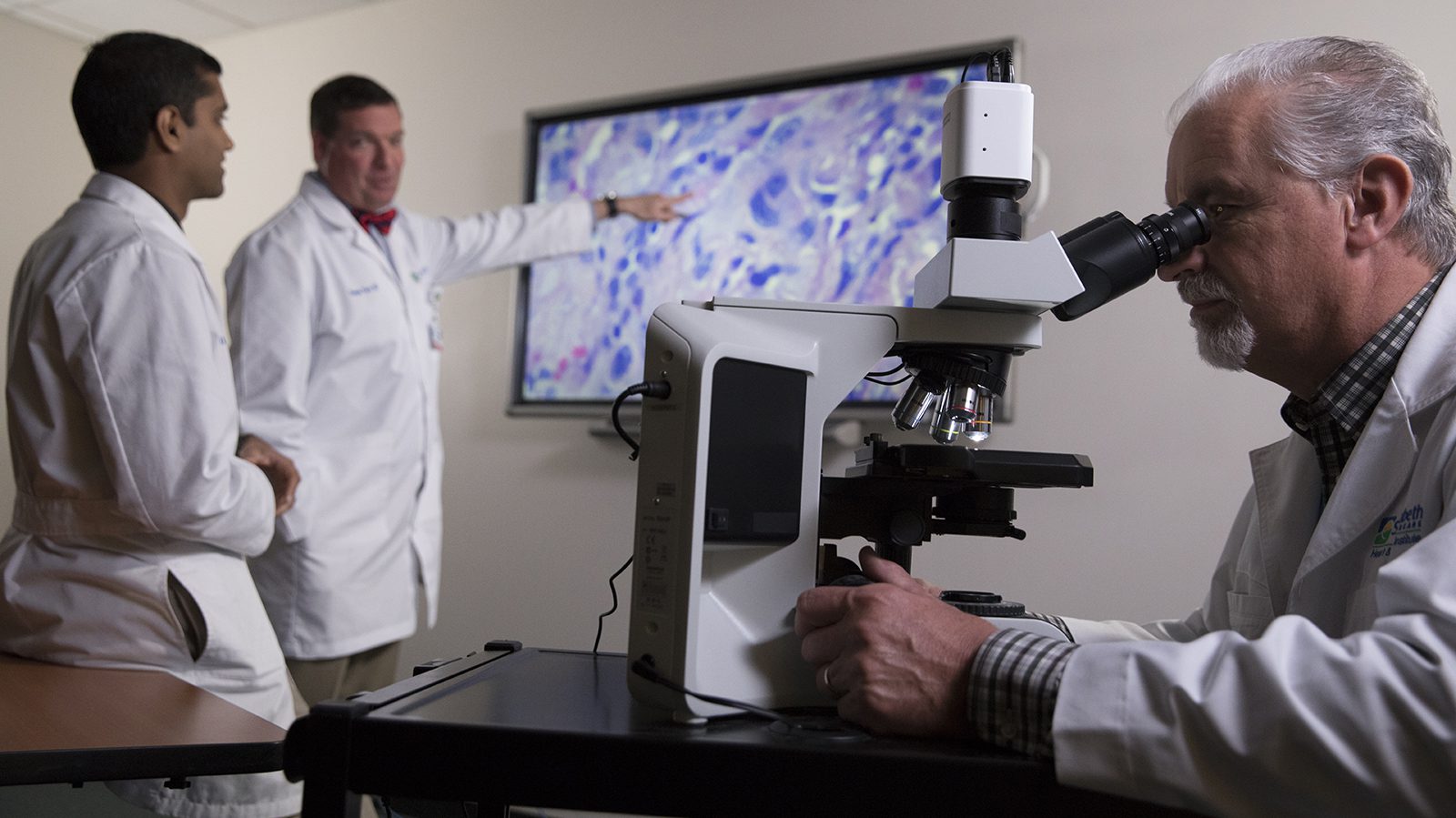Vaginal Cancer
Eighty-five percent of all vaginal cancers are found on the skin or lining of the vagina. The vagina is also called the birth canal and runs from the vulva to the cervix, or the opening to the uterus. Cancer can occur when abnormal cells grow out of control. They typically grow slowly over many years.
Types of vaginal cancer include:
Causes of Vaginal Cancer
The cause of vaginal cancer is typically human papillomavirus (HPV) or a genetic mutation in your DNA. DNA mutations cause healthy cells to change and grow at a rapid rate, causing a tumor. Not everyone with HPV will develop vaginal cancer,
Younger women may get vaginal cancer because their mother was given diethylstilbestrol (DES), a hormonal medication, while they were pregnant. Known as DES daughters, they are at risk of developing cancer at a young age.
Risk Factors for Vaginal Cancer
Some people who get vaginal cancer have a specific mutation in their DNA that increases their risk of getting vaginal cancer. Our hereditary cancer program can provide important information to you and your family. This information allows us to identify cancer early, when it is most treatable, and plan your treatment.
Vaginal cancer is associated with the following risk factors:
- Age.
- Cervical cancer.
- HIV Infection.
- Many sexual partners.
- Sexually transmitted diseases.
- Smoking.

Make an appointment
For more information, please contact your oncologist or the Cancer Care Center at (859) 301-2237, option 2.
Symptoms of Vaginal Cancer
Most women with early-stage vaginal cancer will have no symptoms. Most women with advanced vaginal cancer will have symptoms, including:
- A bump or lump in the vagina.
- Irregular bleeding or discharge (often after sex).
- Pain during sex.
- Pain in the abdomen or low belly.
- Painful urination.
- Thickening of the vulva.
Diagnosing Vaginal Cancer
If your doctor suspects that you have vaginal cancer, we may run tests to determine the type of cancer and develop the best treatment plan. These tests may include:
- Biopsy.
- Blood tests to check genetic makeup and blood markers.
- CT scan.
- MRI.
- PET/CT scan.
- Pelvic exam.
If you’ve been diagnosed with vaginal cancer, we can provide a second opinion and present treatment options.
Treating Vaginal Cancer
At St. Elizabeth Healthcare, we believe in caring for you, not just treating your cancer. Our holistic approach means we combine cancer treatment with working to minimize side effects and help you manage them. Our goal is to make you as comfortable as possible while we use innovative approaches to treat your cancer.
Your treatment plan for vaginal cancer usually begins with radiation and surgery. Depending on the stage of your cancer and whether it has spread, your treatment may include:
Preventing Vaginal Cancer
Steps you can take to reduce your risk of vaginal cancer include:
Your Cancer Care Team
The team includes medical oncologists specializing in immunotherapy and precision medicine, surgical oncologists, radiation oncologists, interventional radiologists, thoracic surgeons, pain management specialists, genetic counselors, pathologists, nutritionists, pharmacists, nurses and support staff. They work together to create a treatment plan that’s just right for you.


